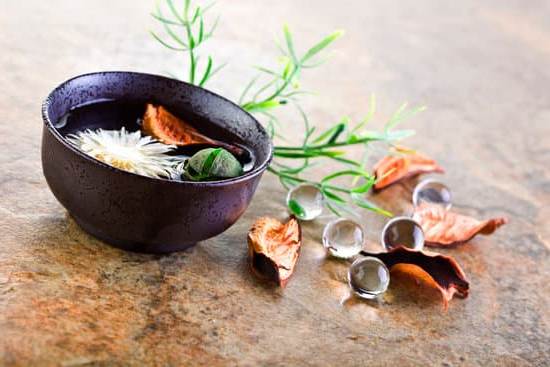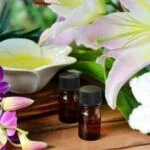The use of aromatherapy in childbirth, commonly known as birth aromatherapy, has gained popularity for its potential benefits in promoting relaxation, reducing stress, and enhancing the overall birthing experience. This holistic approach utilizes essential oils derived from plants to create a soothing atmosphere during labor and delivery. Expectant mothers are increasingly turning to this natural remedy as a way to manage pain and support their emotional well-being throughout the birthing process.
From ancient civilizations to modern childbirth practices, aromatherapy has been used for centuries as a means to improve physical and mental health. The history of aromatherapy in childbirth is rich with tradition and wisdom passed down through generations. Today, it continues to evolve as more research sheds light on the science behind how essential oils can positively impact laboring women.
Understanding the mechanisms behind aromatherapy can provide insights into its efficacy during childbirth. By stimulating the olfactory system, essential oils can influence the limbic system in the brain, which is responsible for emotions and behavior. This can help promote relaxation, alleviate anxiety, and potentially even reduce the perception of pain during labor. As we delve deeper into the benefits of birth aromatherapy, we uncover its potential to enhance the overall birthing experience for both mother and baby.
History of Aromatherapy in Childbirth
Aromatherapy has been utilized in childbirth for centuries, with its roots tracing back to ancient civilizations where natural remedies were highly valued. In Ancient Egypt, aromatic botanicals were used during labor to ease pain and promote relaxation. The Greeks and Romans also embraced the use of essential oils for various health purposes, including during childbirth. These historical practices laid the foundation for the modern use of aromatherapy in labor and delivery.
Over time, the art of aromatherapy evolved as scientific understanding progressed. In the early 20th century, French chemist Rene-Maurice Gattefosse coined the term “aromatherapy” after experiencing the healing properties of lavender oil on a burn injury. This marked a turning point in the recognition of essential oils for their therapeutic benefits. The field continued to develop as researchers explored the physiological effects of aromatherapy on the body and mind, leading to its integration into mainstream healthcare practices.
In contemporary times, aromatherapy has become increasingly popular within maternity care as expectant mothers seek natural alternatives to support their childbirth journey. Midwives and doulas often incorporate essential oils into their birth support services, recognizing the potential benefits they offer in promoting relaxation, reducing anxiety, and easing discomfort during labor. With a blend of ancient wisdom and modern research backing its effectiveness, aromatherapy continues to be a valuable tool for enhancing the childbirth experience.
| Benefits | Sources |
|---|---|
| Promotes relaxation | Ancient civilizations |
| Reduces anxiety | French chemist Rene-Maurice Gattefosse |
| Eases discomfort during labor | Modern midwives and doulas |
Understanding the Science Behind Aromatherapy for Birth
Aromatherapy is a holistic approach that harnesses the power of essential oils to promote physical, emotional, and mental well-being. When it comes to using aromatherapy for birth, the science behind it lies in its effects on the limbic system of the brain. The limbic system is responsible for emotions, memories, and hormonal regulation, making it a key player during labor and delivery.
During childbirth, women experience a myriad of emotions and sensations. Essential oils used in aromatherapy can help to create a calming atmosphere by stimulating the limbic system through the olfactory system. Certain scents can trigger positive emotional responses, reduce anxiety levels, and even alleviate pain perception. This natural approach can be beneficial in promoting relaxation and overall comfort throughout the birthing process.
Research has shown that specific essential oils have properties that can assist in managing various aspects of labor. For example, lavender oil is known for its soothing effects and can help reduce stress and anxiety during childbirth. Peppermint oil may aid in relieving nausea or discomfort. By understanding how different essential oils work on a physiological level, expecting mothers can incorporate aromatherapy effectively into their birth plan for a more positive experience.
| Benefits | Effects |
|---|---|
| Promotes relaxation | Reduces stress and anxiety |
| Alleviates pain perception | Aids in managing discomfort |
Top Essential Oils for Birth Aromatherapy
Aromatherapy has long been used as a natural method to promote relaxation, alleviate pain, and enhance overall well-being, especially during childbirth. The use of essential oils in birth aromatherapy has gained popularity in recent years for their potential benefits in creating a calming and peaceful environment for both the birthing person and the baby. Here are some of the top essential oils recommended for birth aromatherapy, along with their uses and benefits:
- Lavender: Known for its soothing properties, lavender essential oil can help reduce anxiety and promote relaxation during labor.
- Peppermint: Peppermint oil is often used to alleviate nausea and provide a refreshing pick-me-up during the intense stages of labor.
- Frankincense: With its grounding and relaxing effects, frankincense oil can help create a sense of peace and spiritual connection during childbirth.
- Clary Sage: This essential oil is believed to stimulate contractions and may help progress labor naturally when used under the guidance of a healthcare provider.
Each essential oil has unique properties that make it suitable for specific purposes during childbirth. It is important to consult with a certified aromatherapist or healthcare provider before using any essential oils during labor to ensure safety and effectiveness. By incorporating these essential oils into your birth aromatherapy practice, you can enhance your birthing experience and create a more supportive environment for yourself and your baby.
Benefits of Essential Oils in Birth Aromatherapy
- Promotes relaxation and reduces stress levels
- Alleviates discomfort from contractions or other labor pains
- Enhances emotional well-being and promotes a positive birth experience
Overall, incorporating essential oils into your birthing plan can be a gentle yet powerful way to support your body through the process of childbirth. Whether diffused in the air, added to a massage blend, or used in a compress, these natural remedies can provide comfort and relief during this transformative time.
Creating a Relaxing Birth Environment
During the labor process, creating a relaxing and calming environment can greatly impact the birthing experience. Aromatherapy is a popular method used by many expectant mothers to help promote relaxation, reduce stress, and manage pain during childbirth. Here are some tips for using aromatherapy effectively during labor:
- Choose the Right Essential Oils: When selecting essential oils for birth aromatherapy, it’s important to choose scents that are known for their calming and soothing properties. Lavender, chamomile, and frankincense are popular choices that can help promote relaxation and reduce anxiety during labor.
- Use a Diffuser or Inhaler: One of the easiest ways to incorporate aromatherapy into your birthing experience is by using a diffuser or inhaler. Simply add a few drops of your chosen essential oil to the diffuser or inhaler and let the scent fill the room, creating a peaceful atmosphere.
- Create a Personalized Blend: Some expectant mothers may find that creating a personalized blend of essential oils works best for them. Mixing different scents together can tailor the aroma to your specific preferences and needs, enhancing the overall experience.
In addition to these tips, it’s essential to communicate with your healthcare provider about your use of aromatherapy during labor. Some oils may not be suitable for certain medical conditions or may interact with medications. By following safety precautions and considering individual preferences, using aromatherapy in childbirth can be a valuable tool for promoting relaxation and enhancing the birthing experience.
Safety Precautions and Considerations for Using Aromatherapy in Birth
Choosing High-Quality Essential Oils
When using aromatherapy during childbirth, it is crucial to select high-quality essential oils that are pure and safe for topical or inhalation use. Ensure that the essential oils you choose are organic, therapeutic-grade, and free from any synthetic additives or chemicals.
Look for reputable brands that provide detailed information about the sourcing, extraction methods, and quality control of their products. By opting for high-quality essential oils, you can minimize the risk of adverse reactions and maximize the benefits of birth aromatherapy.
Dilution and Proper Usage
Proper dilution of essential oils is essential to prevent skin irritation or sensitization, especially during pregnancy and labor. It is recommended to dilute essential oils with a carrier oil such as coconut oil, almond oil, or jojoba oil before applying them to the skin or using them in a diffuser.
Follow recommended guidelines for dilution ratios provided by reputable sources or consult with a qualified aromatherapist before using essential oils during childbirth. Additionally, avoid ingesting essential oils internally unless under the guidance of a certified healthcare provider familiar with aromatherapy practices.
Avoiding Certain Essential Oils
While many essential oils offer benefits for relaxation, pain relief, and emotional support during labor, some should be avoided due to their potential toxicity or effects on hormonal balance. Pregnant women should steer clear of essential oils such as clary sage, rosemary, cinnamon bark, and wintergreen which may stimulate contractions or cause adverse effects on fetal development.
It is crucial to research each essential oil before use and consult with a healthcare provider or certified aromatherapist if you have any concerns about specific oils. Prioritize safety and caution when incorporating aromatherapy into your birth plan to ensure a positive and healthy experience for both you and your baby.
Personal Stories
The Power of Scent
For many expectant mothers, the use of aromatherapy during childbirth can have a profound impact on their overall experience. The sense of smell is closely linked to memory and emotion, making it a powerful tool for creating a calming and soothing atmosphere during labor. By incorporating essential oils into their birthing environment, women can take control of their surroundings and harness the benefits of aromatherapy to enhance their birth experience.
Embracing Comfort and Relaxation
One common theme among personal stories involving birth aromatherapy is the feeling of comfort and relaxation that the scents provide. Essential oils like lavender, chamomile, and frankincense are known for their calming properties, helping women to manage pain, reduce anxiety, and promote a sense of well-being during labor. By diffusing these oils or using them in massage or inhalation techniques, mothers can create a peaceful ambiance that supports their journey through childbirth.
A Personal Connection
Many women who have used aromatherapy during birth describe feeling a deep connection to the scents they choose. Whether it’s a favorite fragrance that brings back fond memories or an oil specifically selected for its therapeutic benefits, the act of choosing and using essential oils can feel empowering and deeply personal.
These personal connections to scent can help women feel more in tune with their bodies and emotions during childbirth, fostering a sense of strength and resilience as they navigate the challenges of labor.
Integrating Aromatherapy Into Your Birth Plan
When it comes to incorporating aromatherapy into your birth plan, there are several practical steps expectant mothers can take to make the most of the benefits this practice has to offer. First and foremost, it is essential to start by researching and selecting the right essential oils for your needs. Consult with a qualified aromatherapist or healthcare provider to ensure you are choosing oils that are safe and effective for use during labor.
Once you have chosen your essential oils, consider how you will use them during labor. Different methods of application include diffusion, topical application, inhalation, and massage. Creating a birthing environment that is conducive to relaxation and comfort is key, so be sure to pack your chosen essential oils in your hospital bag or birthing kit.
Another practical step for integrating aromatherapy into your birth plan is to familiarize yourself with different blends and recipes that can address specific concerns such as anxiety, pain relief, energy boosting, or promoting relaxation. Experiment with different combinations of oils and find what works best for you personally.
Remember to start using aromatherapy before labor begins so that you can associate the scents with relaxation and calmness when the big day arrives. By taking these practical steps, expectant mothers can harness the power of birth aromatherapy for a positive and empowering birth experience.
Conclusion
In conclusion, birth aromatherapy offers a holistic approach to enhancing the childbirth experience for expectant mothers. By tapping into the power of essential oils, individuals can benefit from their therapeutic properties that promote relaxation, ease discomfort, and reduce stress during labor. From ancient traditions to modern practices, aromatherapy has played a significant role in supporting women throughout the birthing process.
Understanding the science behind birth aromatherapy is crucial in appreciating how it works on a physiological and psychological level. The use of essential oils can positively impact hormones, alleviate pain, and create a calming atmosphere for both mother and baby. By incorporating top essential oils like lavender, chamomile, and frankincense into one’s birth plan, individuals can experience the various benefits these natural remedies offer.
Moreover, creating a relaxing birth environment through the use of aromatherapy not only transforms the physical space but also influences the emotional well-being of those involved. Practicing safety precautions and considering individual preferences when using essential oils are paramount in ensuring a positive birthing experience.
As more personal stories emerge showcasing the benefits of birth aromatherapy, expectant mothers are encouraged to explore this alternative therapy as part of their childbirth journey. Ultimately, by harnessing the power of birth aromatherapy, individuals can cultivate a sense of empowerment and tranquility during this transformative time in their lives.
Frequently Asked Questions
What Aromatherapy Is Good for Labor?
Aromatherapy during labor can be beneficial in providing pain relief, relaxation, and emotional support. Essential oils like lavender, peppermint, and clary sage are commonly used to ease labor discomfort and promote a sense of calmness.
What Is Aromatherapy During Labour?
Aromatherapy during labor involves the use of essential oils derived from plants to alleviate physical and emotional symptoms related to childbirth. These oils can be diffused in the air, applied to the skin through massage, or inhaled directly for their therapeutic effects.
What Are the Delivery Methods for Aromatherapy?
The delivery methods for aromatherapy during childbirth vary depending on personal preference and comfort level. Some common ways to use essential oils include adding a few drops to a warm bath, inhaling them from a cotton ball or tissue, using an electric diffuser, or diluting them with a carrier oil for massage on the skin.
Each method offers unique benefits in promoting relaxation and pain management during labor.

Are you looking for a natural way to improve your health and wellbeing?
If so, aromatherapy may be the answer for you.





